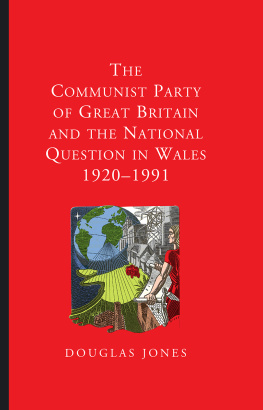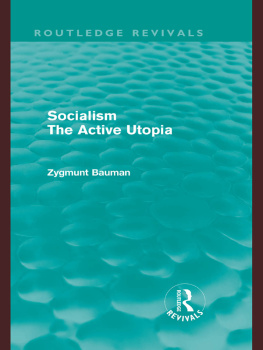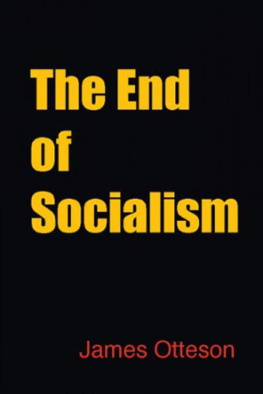Martin Wright, 2016
All rights reserved. No part of this book may be reproduced in any material form (including photocopying or storing it in any medium by electronic means and whether or not transiently or incidentally to some other use of this publication) without the written permission of the copyright owner. Applications for the copyright owners written permission to reproduce any part of this publication should be addressed to the University of Wales Press, 10 Columbus Walk, Brigantine Place, Cardiff CF10 4UP.
www.uwp.co.uk
British Library CIP Data
A catalogue record for this book is available from the British Library
ISBN 978-1-78316-916-0
eISBN 978-1-78316-918-4
The right of Martin Wright to be identified as author of this work has been asserted in accordance with sections 77 and 79 of the Copyright, Designs and Patents Act 1988.
Cover image: The January 1910 General Election campaign in Merthyr: from left to right Keir Hardie, Charlotte Shaw, Revd Geoffrey Ramsay and George Bernard Shaw. Reproduced by permission of the Peoples History Museum, Manchester.
Since the foundation of the series in 1977, the study of Waless history has attracted growing attention among historians internationally and continues to enjoy a vigorous popularity. Not only are approaches, both traditional and new, to the study of history in general being successfully applied in a Welsh context, but Waless historical experience is increasingly appreciated by writers on British, European and world history. These advances have been especially marked in the university institutions in Wales itself.
In order to make more widely available the conclusions of original research, much of it of limited accessibility in postgraduate dissertations and theses, in 1977 the History and Law Committee of the Board of Celtic Studies inaugurated this series of monographs, Studies in Welsh History. It was anticipated that many of the volumes would originate in research conducted in the University of Wales or under the auspices of the Board of Celtic Studies, and so it proved. Although the Board of Celtic Studies no longer exists, the University of Wales continues to sponsor the series. It seeks to publish significant contributions made by researchers in Wales and elsewhere. Its primary aim is to serve historical scholarship and to encourage the study of Welsh history.
This book has been a long time in the making. In a sense, its roots might be traced back to both Lampeter and Daventry in the 1980s. It has grown out of the confluence of two major themes in my own life. On the one hand, it is informed by an interest in (and commitment to) socialist ideas that I have held since my teenage years, and which I was fortunate enough to study at Masters level as a student at Lampeter in the late 1980s. On the other hand, the desire to write about socialism in Wales, rather than in Britain generally, is a natural consequence of the fascination and love that I have felt since childhood for the land of Wales, its people and its language. The book could not have been written without the experience of being an Englishman making a life in Wales, where I have been lucky enough to live for the last thirty years. As with many of the individuals who feature in the following pages, I have lived at an interface between cultures. My life has been enriched as a result, and any insights that I might have brought to the study of socialist history have resulted directly from this experience.
During what has been an eventful and captivating journey I have accumulated many debts. It would be impossible to name all the individuals who have contributed to the making of this book (many of them unknowingly), but some general acknowledgements are due. Those involved in teaching me history at Lampeter (and indeed at Daventry), and those involved in teaching me the Welsh language at Aberystwyth, have all been responsible for placing foundation stones for this study. The students with whom Ive been lucky to share and discuss ideas at Lampeter, across mid-Wales and at Cardiff have all played a role in helping me build upon those foundations. Likewise my colleagues at Aberystwyth Universitys Continuing Education Department in the 1990s and early 2000s, and my comrades in Llafur: The Welsh Peoples History Society, have all played an essential part in my education. More critical still are the personal friends musicians, mine-explorers, climbers, ramblers, and other general nonconformists who have accompanied me through the years. Without them I wouldnt have got here.
Some individuals have played a crucial role in my academic development at critical moments. Professor Paul Ward of Huddersfield University deserves thanks for pulling me back into academic research at a time when it looked like I might have left it for good. Without the opportunity to work with him on the Huw T. Edwards project I wouldnt have been able to conceptualise the current book. I owe a greater debt still to Professor Bill Jones of Cardiff University, who supervised the PhD upon which this book is based. His professional support and personal friendship have been invaluable.
Institutions too have played their part. The research upon which this study is based would not have been undertaken without the award of a PhD studentship from the Coleg Cymraeg Cenedlaethol. Numerous archives and libraries have been used during the research for this book, and I have received help and support from a great number of their staff. In particular I wish to record my thanks to the staff of the following institutions: The National Library of Wales at Aberystwyth, Bangor University Library and Archive, The South Wales Miners Library at Swansea, Swansea University Library and Archive, Cardiff University Library, The Hugh Owen Library at Aberystwyth University, Aberdare Public Library, The British Library of Political and Economic Science in London, Glamorgan Archives in Cardiff and Cardiff Central Library. Another institution that was essential to the completion of this book was the National Health Service. Thanks in particular are due to the staff of the Royal Gwent Hospital at Newport, the University Hospital Wales at Cardiff and the Church Surgery at Aberystwyth. Without them there would be no me, and hence no book. Their work is but one of the fruits of the socialism that the individuals featured in this book strove to create. Long may it endure! Various people have read the manuscript of this book at different stages, and their suggestions have without doubt improved it. Particular thanks are due to the Studies in Welsh History series editors, and to Professor Sir Deian Hopkin and Professor Paul OLeary. I must, however, take responsibility for any remaining errors.









